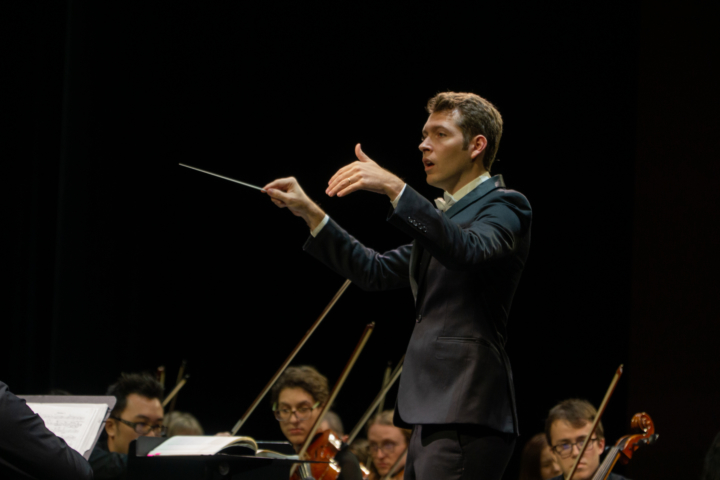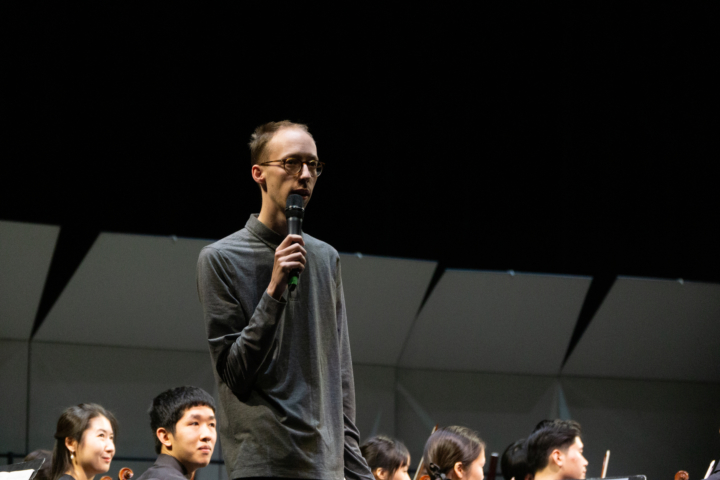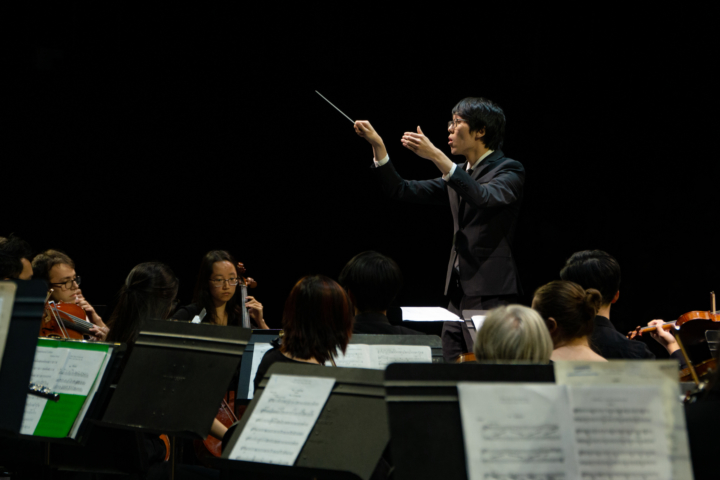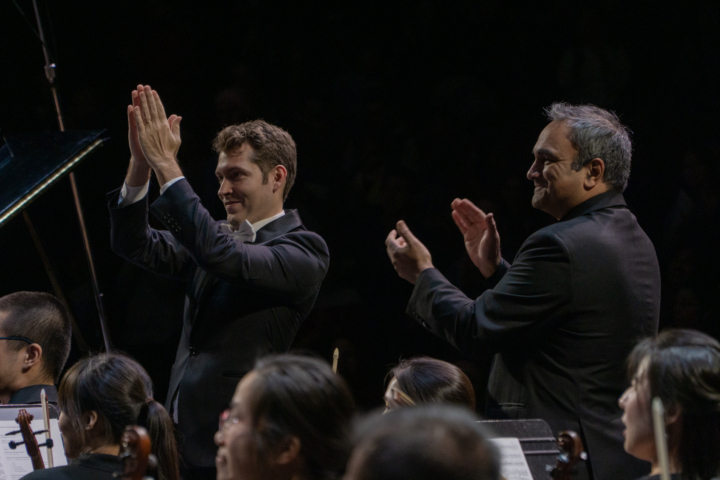Over the past few months, I have been the photographer for the University of Toronto Campus Philharmonic Orchestra’s (UTCPO) spring and fall concerts, which is conducted and run by U of T PhD candidate, Lorenzo Guggenheim. I was first introduced to the UTCPO by a friend, a cellist in the orchestra, who asked me to photograph the spring 2019 concert. Being a violinist myself, how could I turn down such an opportunity?
For their fall 2019 concert, which took place on December 2, they performed: “Unanswered Letters,” a new piece by Matthew Emery; The Swan Lake suite by Pyotr Ilyich Tchaikovsky, and “Piano Concerto No. 2” by Sergei Rachmaninoff, featuring Alexander Panizza on the piano.
Lorenzo created this orchestra to encourage students who wished to make music but did not have as much time to continue doing what they enjoy due to their studies. I approached him with a few questions in the hope of sharing his message with a broader audience.

Lorenzo Guggenheim, doctoral candidate at U of T and the conductor of the UTCPO.
The Varsity: What is the UTCPO?
Lorenzo Guggenheim: The orchestra is a space for members of the university to make time to play music in a low-stress environment with a positive atmosphere, and with the objective of enjoying playing music. I want it to be a space for everyone that plays an orchestral instrument and is interested in devoting some time from their week to focus on something other than their main duty at the University of Toronto, but still on campus.
TV: Why did you decide to create this orchestra?
LG: I decided to start this orchestra when I realized that there wasn’t such an orchestra with these characteristics in a university so big. My Master’s degree is from the University of Washington, where there are around half the amount of students that U of T has, but still it managed to have two campus orchestras, two campus bands, and the main symphony orchestra had a lot of string players that were not music majors.
I realized in cities so multicultural, like Seattle and Toronto, there are a lot of people that have devoted years of their life to learn an instrument and then at some point, other activities take over and it prevents them from continuing playing. We had so many members playing who told me they were just looking for an opportunity like this to get back to it!
TV: What do you enjoy most about the UTCPO?
LG: Even though the performance is not the ultimate goal of the project, seeing everyone ready and excited to perform for a large audience of people who are there to support them, it is just hard to describe — walking on stage and seeing so many smiling faces and realizing that if this orchestra didn’t exist most of the players wouldn’t be making music at all.
TV: What do you see this becoming in the future?
LG: I hope it can become an orchestra with a huge community of players and audience. My dream is to make this orchestra an official offering of the Faculty of Music, where non-music majors can get credit, and make it a platform for future graduate students in orchestral conducting to hone their craft.
It is of vital importance for a conducting student to have real experience with an orchestra, and there is no better learning tool than managing an orchestra in its totality, from picking the music to be performed, printing the parts, preparing the programmes, managing publicity, and every other aspect of putting on a performance.

Matthew Emery, the composer of “Unanswered Letters,” which premiered at UTCPO’s fall 2019 concert.

Jonathan Wong, assistant conductor of the UTCPO, conducting “Unanswered Letters.”

Guggenheim and Alexander Panizzo, pianist, applaud the orchestra after the concert.
This interview has been edited for length and clarity.
Disclosure: Samantha Yao is a photographer for the University of Toronto Campus Philharmonic Orchestra.


